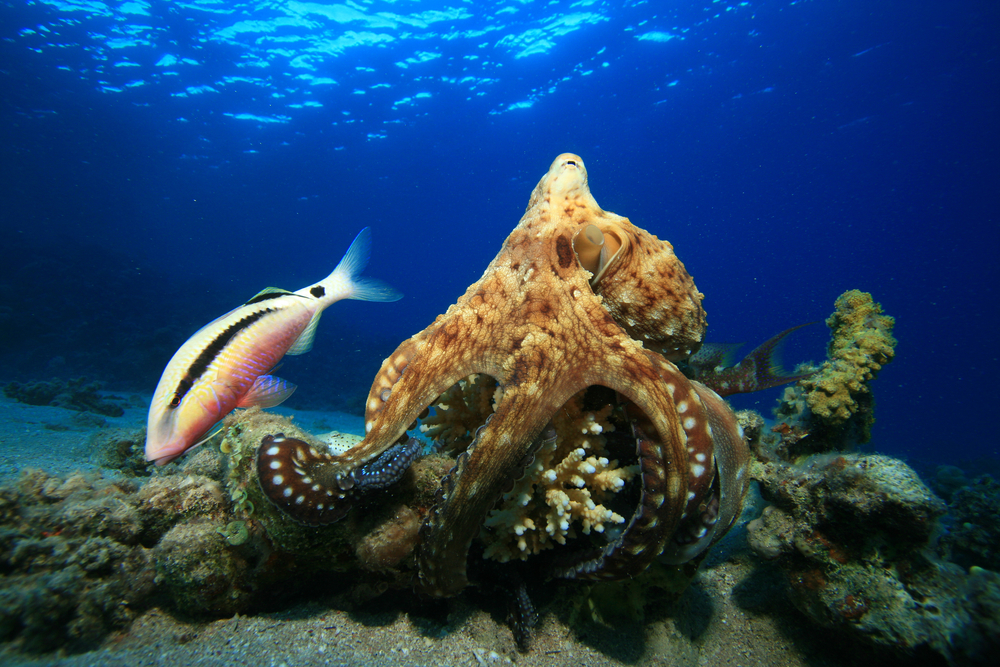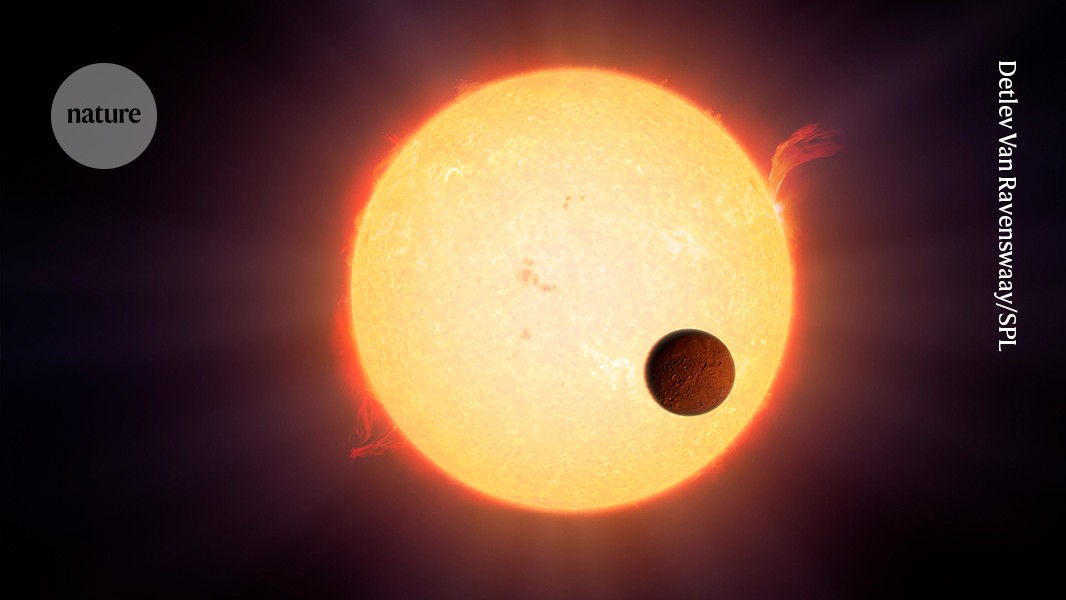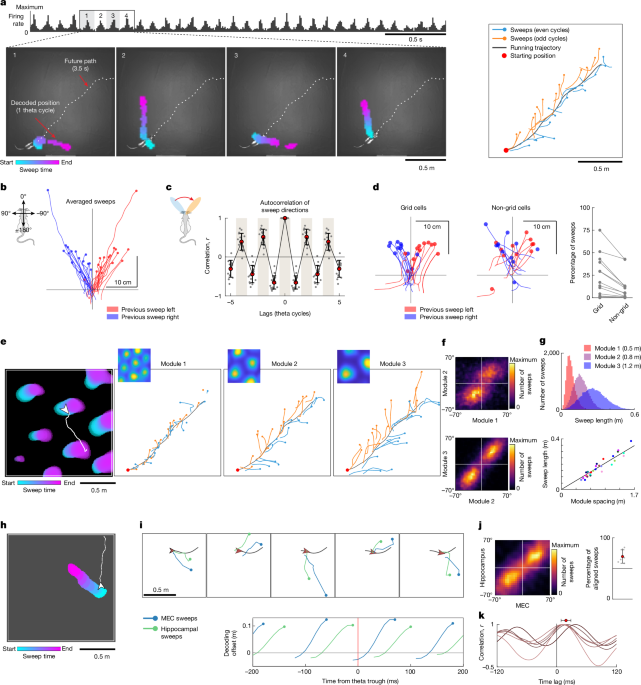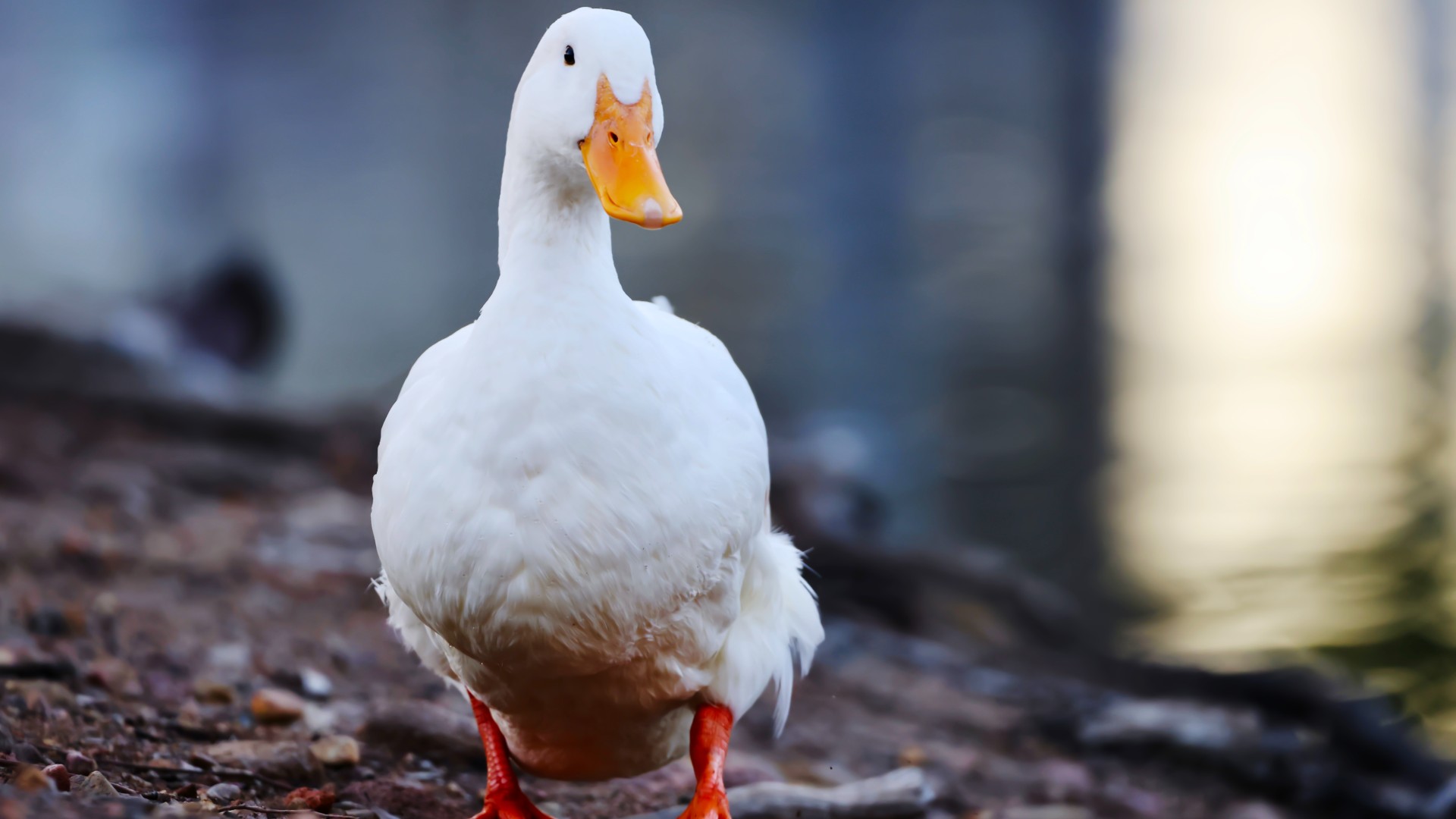www.discovermagazine.com
Throughout the animal kingdom, resourcefulness often means the difference between a good meal and an empty stomach. And near coral reefs, where competition for food is particularly fierce, nature has cooked up an extraordinary solution: octopus and fish teaming up to hunt. This collaboration isn't just about sharing a meal. Its a carefully coordinated dance where each species plays a distinct and dynamic role. And when a fish slacks off, the octopus isnt shy about delivering it a swift slap. Teamwork Beneath the WavesNew research published in Nature Ecology & Evolution studied how the common octopus (Octopus vulgaris) and several fish species coordinate their hunting efforts to catch prey more effectively. This study meticulously analyzed hunting footage taken during about 120 hours worth of dives primarily in coral reefs near Eilat, Israel. The octopus, with dexterous arms and camouflaging abilities, excels at extracting prey from crevices and hiding spots, commonly using a technique called a web-over. When the octopus performs the web-over, what it does is it basically traps everything inside, says Eduardo Sampaio, lead author of the study. It prolongs its arms, and between its arms, it has this interbrachial web. And by extending this interbranchial web [] it doesn't let anything that is inside escape. Then the octopus uses the tips of the arms to try to get the fish. Meanwhile, fish like goatfish and blackfish grouper contribute their exploratory abilities to the hunt, finding and signaling the locations of hidden prey that the octopus might otherwise miss. And once the octopus traps the prey, Sampaio says the situation becomes very dire for the target. The prey has two choices, right? Either it stays inside the coral or the rocks and eventually will get caught by the octopus, or it tries to flee through a crack, and the partner fish are waiting there, says Sampaio.The Dynamics of the CollaborationThe researchers found that this hunting partnership is remarkably dynamic, with each species complementing and effectively responding to the other. The fish find the prey, Sampaio says, and the octopus then serves as this unlocking key because it creates this opportunity of the prey escaping for the fish.But even this alliance isnt without conflict. The study documented instances of octopuses punching fish that failed to contribute to the hunt. Such enforcement behavior helps the hunting group ensure that all participants pull their weight, while also preventing the hunt from spiraling into a negative feedback loop of fruitless attempts. And according to Sampaio, one type of fish is the most common recipient of a punch. What we know is that the black tips and the sit-and-wait predators, so the ones that move less, tend to get punched more exactly because they contribute less for the hunt, Sampaio says.Interestingly, its not just the octopus that enforces cooperation, either. The other fish also displace the sit-and-wait predators more than they do others, Sampaio says. This indicates that both the octopus and the partner fish don't like this exploiter being there. But they are part of the group as well. Intelligence and Social ComplexityOctopuses are already renowned for their problem-solving skills and tool use, but this study provides further evidence of their ability to navigate complex social dynamics. By engaging in these interspecies interactions, octopuses and fish display skills such as species recognition, behavioral flexibility, and the ability to respond to referential gestures, which is a considerable cognitive accomplishment. The researchers are now exploring whether octopuses that live in regions beyond the Red Sea engage in similar dynamic collaborations. The Evolutionary EdgeIn coral reefs, where competition for food and resources is intense, cooperation can offer a vital edge, which could explain why octopuses and fish have evolved a partnership that allows them to exploit food otherwise inaccessible to a single species.This partnership is an example of mutualism, where both species benefit from the interaction. Fish provide an expanded sensory network for the octopus to help locate accessible (to the octopus, at least) prey. And the unparalleled ability of the octopus to reach into tight spaces increases the likelihood of a successful hunt for the fish. The collaboration serves to increase hunting efficiency and conserves energy for both parties, which is a clear evolutionary advantage in such a competitive ecosystem.Beyond the ReefMoving forward, Sampaio and his team are working to take their research even further by introducing robotic fish to the hunting groups, studying the nuances of the resulting interactions. Were building robot fish to see how the octopus responds, and how the other partner fish respond, when these fish, for example, are lazy, or when they are active, or when they do certain behaviors, he says. The hope is that such experiments could shed more light on the complex cognitive and ecological dynamics that govern such unusual interspecies alliances. Octopus-fish hunting groups are truly a testament to the ingenuity of life under the sea, where survival frequently demands creativity, cooperation, and, occasionally, a well-placed slap.Article SourcesOur writers at Discovermagazine.com use peer-reviewed studies and high-quality sources for our articles, and our editors review for scientific accuracy and editorial standards. Review the sources used below for this article:Ocean Conservancy. Get to Know GoatfishUSGS Science for a Changing World. Epinephelus fasciatus (Forsskl, 1775)












